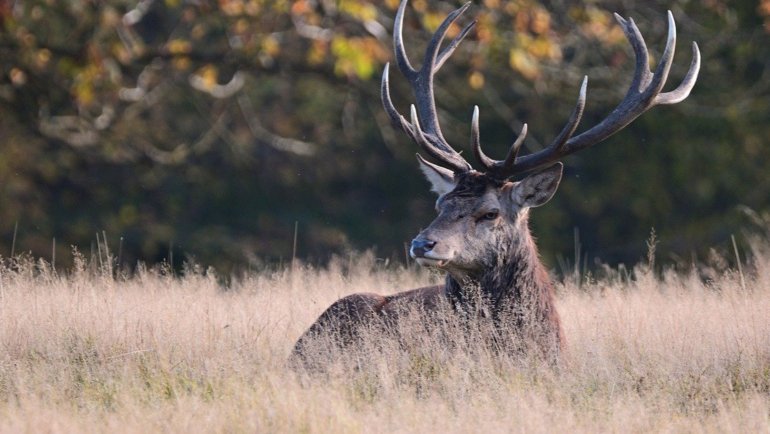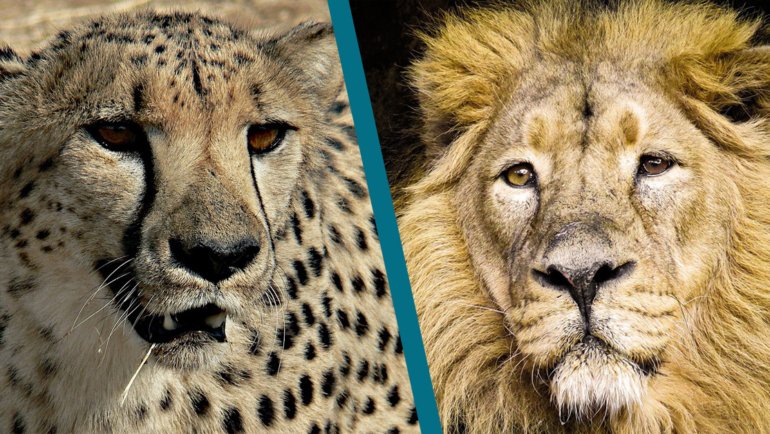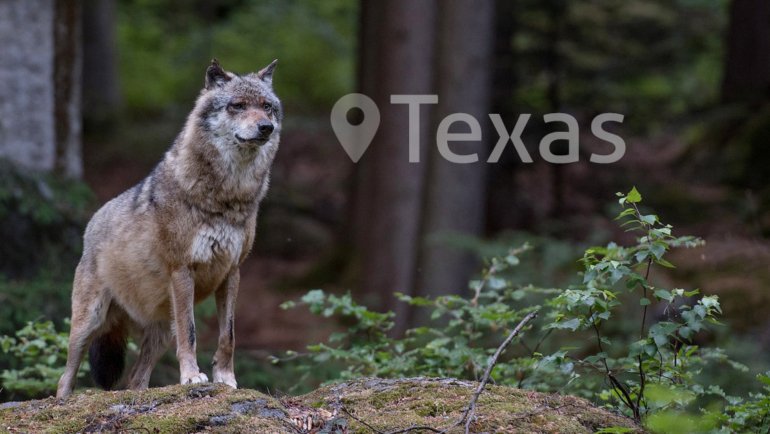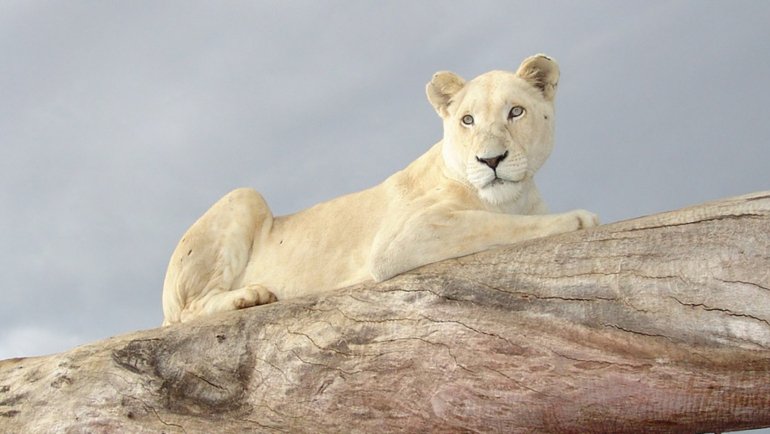Almost all animals, including humans, fear lions and would do anything to avoid making them angry. Apart from being considered the King of the jungle, they are also at the top of the food chain, which means they aren’t inferior to any other species.
That’s why it’s hard for some people to believe that some primates have the guts to steal the beast’s most treasured item, their cubs.
Fortunately, this article will clear such doubts by explaining why baboons steal lion cubs and how they execute such a daring and suicidal act.
Why Do Baboons Steal Lion Cubs: 4 Main Reasons
Below are four reasons why these primates embark on this deadly mission.
Revenge
One major disadvantage of being the most dangerous and powerful animal/predator is having plenty of enemies. Baboons know that lions kill and eat them, and since they can’t attack the big cat, the only viable option to exact their revenge on the beasts is stealing their cubs.
Young cubs don’t pose any danger to baboons and can’t fight back; therefore, when the primates spot a cub, they usually plot how to grab it to get back at their parents.
Due to their high level of intelligence (baboons’ intelligence is almost close to that of humans), they usually succeed. This action also achieves its intended goal since the mother lion becomes enraged upon discovering that its missing child is in the hands of the primates.
Hence the saying, revenge is a dish best served cold, always applies in this situation!
Also read: Do Monkeys Eat Banana Peels? Do They Actually Eat Bananas?
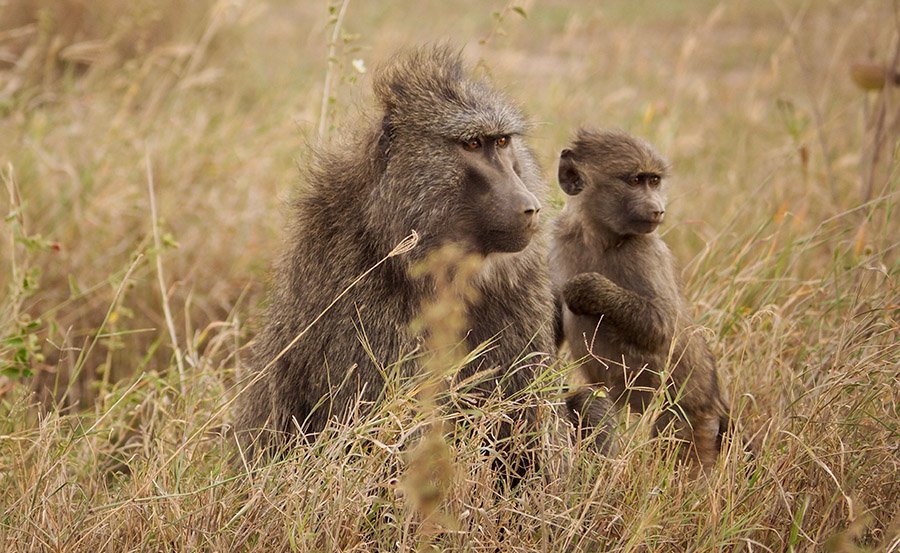
Food
Baboons are omnivorous, meaning they feed on vegetation and occasionally supplement their diet with meat. They are also opportunistic hunters, meaning they’ll take full advantage of hunting vulnerable prey showing fewer signs of resistance. Such preys include rodents, small birds and poultry, young gazelles, antelopes, and lion cubs.
When female cats go hunting, they leave their offspring in their dens or under the trees to protect them from the scorching sun. Some cubs, unaware of the dangers awaiting them, sometimes stray from where their mothers left them.
When baboons spot a straying and unprotected cub, they utilize the opportunity by hunting and eating it to satisfy their protein needs.
Playmates
A common similarity between young baboons and cubs is their playful character. When the young primates see the small lions joyfully running around and playing, they innocently view them as potential playmates.
Whenever the cubs intimidating parents aren’t around, the young baboons often creep, grab and carry them to their usual habitats, which are at the top of trees, to continue playing with them.
Since both species are usually too young to view the other as enemies, it’s common to spot them playing together or the young primates trying to groom the cubs.
Unfortunately, most cubs end up dying from being roughed up by the baboons’ excessive force during the games.
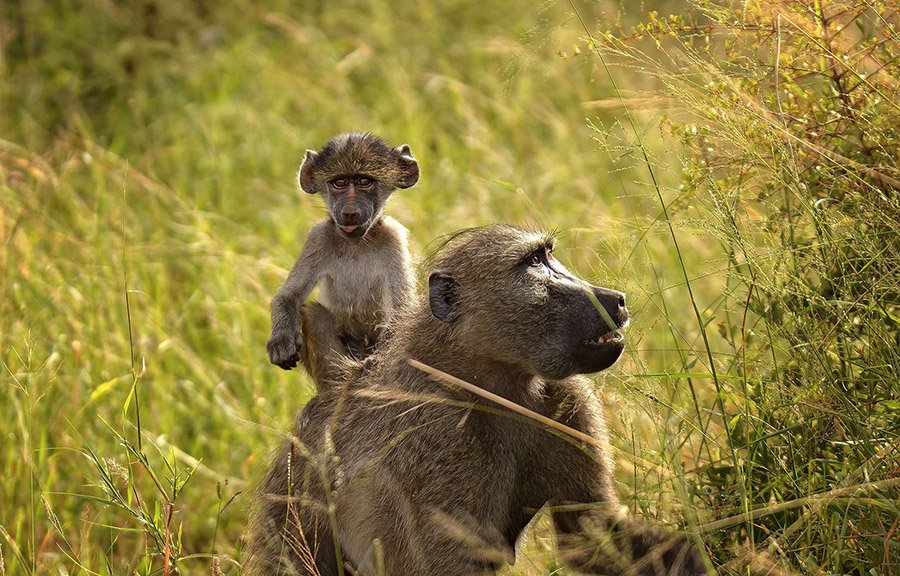
Curiosity
It’s common for those old or young baboons that have never seen a lion before to be curious about the younger cats. Since most primates are naturally curious, they often explore their environment and any creatures near them to see their reactions.
It explains why some adult baboons have been spotted with lion cubs, grooming or handling them as if they are related and of the same species. Most likely, they have never encountered a big hostile cat; hence they don’t view the feline offspring as a threat.
You may wonder why their curiosity doesn’t lead them to adult lions. The best explanation is that mature cats, unlike their offspring, often appear intimidating. Small cubs are never still unless when asleep.
Therefore, their constant movement and activity often spark the interest of inexperienced and young baboons wanting to learn more about this small, active creature. Unfortunately, they often kill and eat it when they satisfy their curiosity after stealing the cub.
Also read: Why Do Baboons Have Red Bottoms?
How Do Baboons Steal Lion Cubs?
As previously stated, baboons have a high IQ, only second to humans, which enables them to steal a lion’s cubs even when their mother is close.
Below are some of the most effective strategies and methods used by the primates to enable them successfully perform this daring mission.
Sneak and Grab
This tactic is the most common way baboons apply to kidnap the King of the jungle’s child. They patiently monitor the pride’s movements and activities while seated at the top of the trees surrounding the lions.
Whenever an opportunity arises, for instance, when the lions are asleep or busy chasing other prey, the primates will sneak up on the abandoned cubs and grab them as fast as possible.
They carry them using their mouths and return to the trees where the lions can’t reach them (the felines are not good tree climbers).
Distract and Grab
Although this tactic is usually dangerous, baboons usually apply their strength in numbers to achieve success. When they spot a single female with cubs, they divide themselves into a team where some of the fastest and most cunning members proceed to disturb and distract the mother lion.
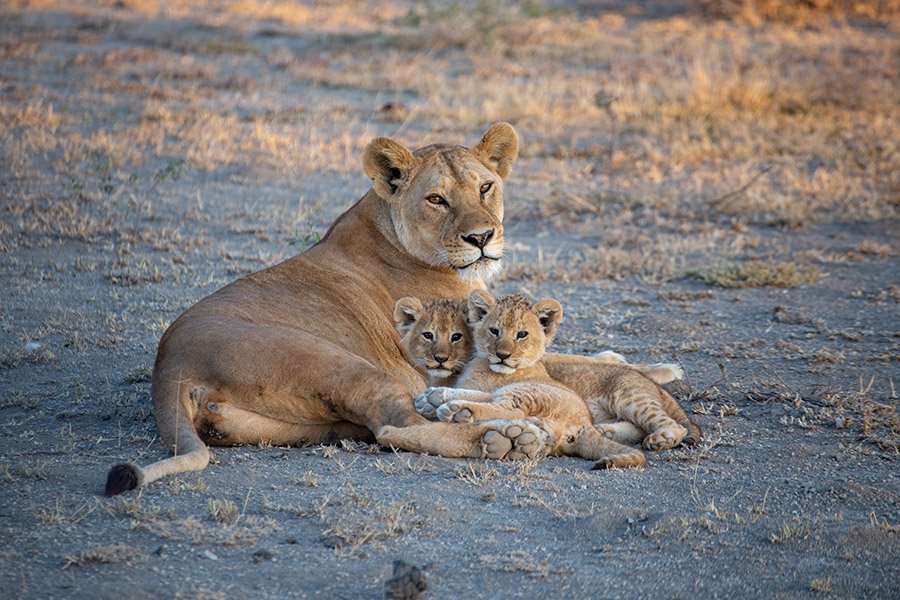
When the beast starts to chase the annoying primates, the other baboons take advantage of this opportunity by stealing the now-unguarded cubs.
Straying Cubs
This scenario is mainly a result of luck. Cubs often stray away from their dens and their parents’ view. A baboon may utilize this chance by grabbing the defenseless young cat before their mother notices.
Do Baboons Raise Lion Cubs?
No, baboons don’t raise lion cubs since the law of nature won’t allow it. However, there is a famous documented case where a male baboon in South Africa’s national park (Kruger) was spotted grooming and protecting a lion’s cub from other hostile baboons as if it was his own.
Unfortunately, the young cat didn’t survive for long since the primate’s rough handling didn’t enable it to reach its maturity stage. Even in captivity, the cubs’ tenderness and vulnerability when young are incompatible with the primates’ nature. Either they die while young, or the wardens must separate them from the primates’ care.
Another reason it is impossible is that once the baboon’s curiosity weathers off, they will kill and eat the small cat as it doesn’t amuse them anymore.
Do Baboons Steal Other Big Cat Cubs?
Yes, baboons also steal other big cat cubs, mainly the leopards. The same conditions, tactics, and fate of the leopards’ offspring are similar to lions.
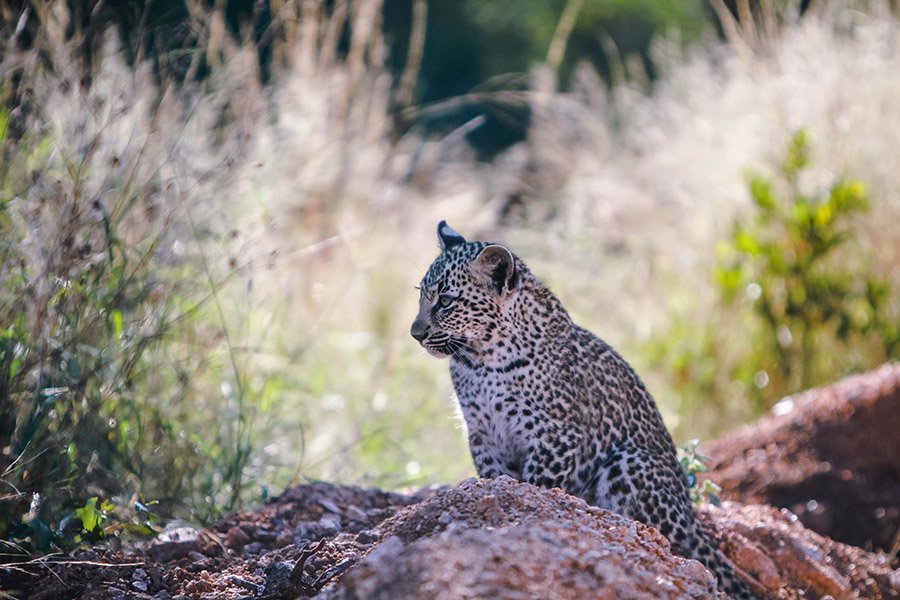
However, it’s essential to note that leopards have a higher chance of saving their cubs from the primates since these cats are excellent tree climbers, unlike lions.
When a mother spots her kidnapped offspring at a tree top with the primates, it will do its best to climb and save it. When the baboon sees the determination of the feline and sees its coming closer, it will abandon the cub and flee for safety if there aren’t enough primate members to overpower the big cat.
Also read: Lion vs. Leopard: Main Differences & Who Would Win a Fight?
Frequently Asked Questions
Do Baboons Kill Lion Cubs?
Despite the primates’ reasons and intentions in taking them, most of the cubs that end up under the custody of baboons often end up dead, regardless of whether the baboons directly or indirectly killed them.
Do Baboons Eat Lion Cubs?
Yes, baboons often eat lion cubs. As stated earlier, primates are omnivorous and opportunistic feeders. It means that any chance they get to satisfy their protein needs, they’ll use it, which includes eating the younger felines.
Do Lions Eat Baboons?
Although baboons are not their favorite prey, since they prefer soft flesh common in herbivores such as wildebeests, zebras, gazelles and antelopes, they also eat baboons when an opportunity arises.
Final Thoughts
Mother nature may seem cruel and difficult to understand, but her ways are always justified. One of those instances where she portrays her genius plans is in the lion-baboon relationship.
Since these big cats don’t have any predators, one of the most effective ways of maintaining a sustainable lion population in the jungle is by equipping baboons with sufficient intelligence and courage to steal and kill their cubs. It helps regulate the beasts’ numbers to an optimum level that the ecosystem can comfortably handle.
Learn More About Lions
- Lion: Characteristics, Diet, Facts & More [Fact Sheet]
- Do Lions Eat Grass? The Answer Might Surprise You!
- Lion vs. Leopard: Main Differences & Who Would Win a Fight?
- Do Lions And Tigers Live Together?
- Are There Lions in Israel? Here is All You Need to Know
- What Do Lions Eat? Learn All About The Lion’s Diet
- What Color Are Lions’ Eyes? Lion Eye Colors Explained
- What is Lions’ Hunting Success Rate? How Do They Compare With Other Predators?
- Lion Hybrids: A Comprehensive Overview

